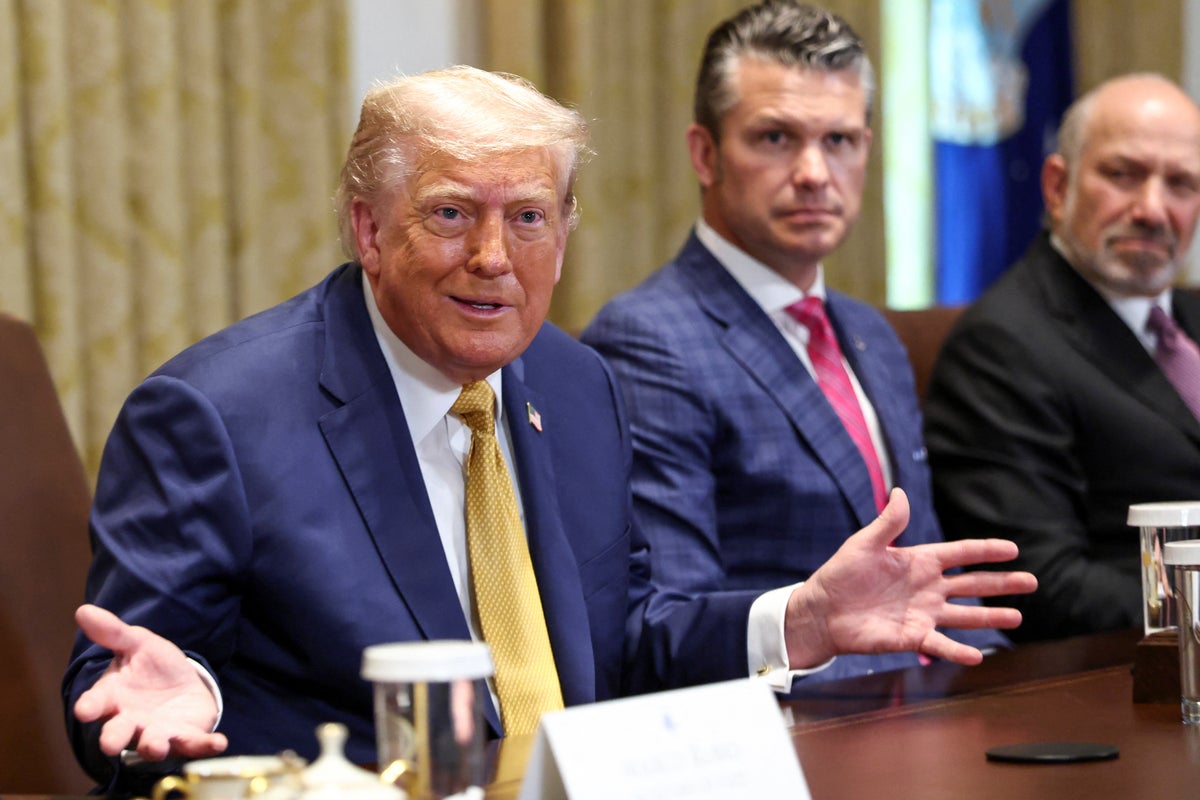Pentagon Decision Sparks Controversy and Internal Concerns
A recent decision by the U.S. Defense Secretary, Pete Hegseth, to pause the delivery of weapons to Ukraine has sparked significant internal debate within the Trump administration. According to reports, Hegseth did not inform President Donald Trump or the White House before authorizing this pause. This move reportedly led to a scramble among officials trying to understand the reasoning behind it and to explain the Pentagon’s actions to Congress and the Ukrainian government.
The rationale for the pause was said to be concerns over low stockpiles of weapons, with some U.S. defense officials wanting to divert arms to Israel to help it deal with threats from Iran. This decision came at a time when Ukraine was facing intensified attacks from Russia, which raised fears that the withholding of American assistance could weaken Kyiv’s ability to defend itself against incoming ballistic missile assaults.
Tolong support kita ya,
Cukup klik ini aja: https://indonesiacrowd.com/support-bonus/
Trump reportedly instructed Hegseth to restart the shipment of at least some munitions to Ukraine after learning about the pause. Specifically, he wanted interceptor missiles for Patriot air defense systems that were already in Poland waiting for delivery. However, Trump later reversed his decision during a private dinner with Israeli Prime Minister Benjamin Netanyahu, where he stated that more weapons would need to be sent to help Israel defend itself.
Ukrainian President Volodymyr Zelensky had previously expressed concerns about the U.S. support, stating that his country was counting on American assistance. He emphasized the urgent need for 20,000 anti-drone missiles that were originally promised by the Biden administration. These missiles are crucial for countering Iranian-made Shahed drones that have been heavily used by Moscow against Ukraine.
According to CNN, neither Secretary of State Marco Rubio nor the U.S. Special Envoy to Ukraine, Ret. Gen. Keith Kellogg, were informed about the pause in weapons shipments to Eastern Europe. However, Pentagon Press Secretary Kingsley Wilson claimed that Hegseth provided a framework for the President to evaluate military aid shipments and assess existing stockpiles. He added that this effort was coordinated across the government.
White House Press Secretary Karoline Leavitt stated that the Pentagon conducted a review to ensure all support going to foreign nations aligns with America’s interests. She also confirmed that Trump has decided to continue providing defensive weapons to Ukraine to help stop the killing in the war. Leavitt added that Trump has full confidence in the Secretary of Defense.
Despite these reassurances, the incident has raised questions about Hegseth’s leadership at the Department of Defense (DOD). Since being nominated to lead the Pentagon in November, Hegseth faced a challenging confirmation process marked by allegations regarding his drinking habits and a sexual assault claim. He was finally confirmed by the Senate in January.
Just two months into his role, Hegseth initiated an anti-woke purge of the U.S. military, which led to the “Signalgate” scandal. This involved a national security adviser accidentally sharing classified information in a group chat. Later, it was reported that Hegseth shared sensitive material in another group chat that included his wife, brother, and personal attorney.
Hegseth responded by suspending several senior aides, but an investigation found no evidence against them, casting doubt on his judgment. His chief of staff and spokesperson both left the DOD, contributing to a perception of chaos within the office.
Efforts to find qualified replacements for his departed staff have been difficult, with Vice President JD Vance and White House Chief of Staff Susie Wiles reportedly helping with recruitment. This ongoing instability highlights the challenges faced by the Department of Defense under Hegseth’s leadership.







